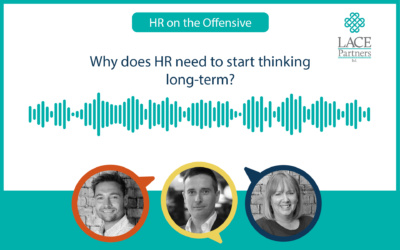This blog includes one of the the topics discussed in our recent One Big Thing research. Click here to learn more.
In this week’s blog we were joined by Sam Field from Oakleaf Partnership and our very own Adam Morris to talk about talent in the payroll space. It’s a deep dive of the key takeaways from a recent podcast, where we discussed the skills required to succeed in the payroll space – and what challenges to hiring in the industry.
What are the biggest challenges in hiring payroll talent?
There were periods in the pandemic where many payroll functions had to either reduce the size of their teams or struggled with retention. This has now been flipped on its head and many organisations are driving to grow their payroll teams, creating a lot of competition in the market. This has resulted in what may be described as a ‘candidate’s market’ where organisations have had to increase salaries and boost salary packages to try and attract and retain top talent.
If it’s a ‘candidate’s market,’ what else are payroll professionals asking for?
Naturally, if you are moving to a new organisation you need to feel like you are developing within yourself. They want to be able to make an impact. Candidates want to go to a home where they can better themselves but also make a difference to their team and get exposure to new facets in their role.
That said, it’s hard to ignore the fact that the biggest factor is likely to be renumeration. I would say that in 80% of people we’ve seen leaving roles it boils down to that.
Are there any positions or levels which are in higher demand than others?
This is a really hot topic at the moment. One space which has been a real challenge over the last six months is in EMEA payroll. There has been high demand and candidates are holding all the keys; creating something of a bidding war. Teams which are trying to hire missing roles are discovering that the salaries have jumped dramatically, although the skill sets have stayed the same.
Are there any particular new skills or capabilities required by organisations?
We’ve seen an increase in job specs asking for good stakeholder management. This skill is most obvious working with people internally who may not truly understand payroll and helping them buy in to projects and requirements from the function.
Alongside that, I would also say there is more emphasis on reporting as organisations are expecting candidates to be able to be the voice of payroll within the business. To be able to take the data from within the function and feed it back to the wider team in a meaningful way has never been more important.
Finally, from an external perspective, the importance of good vendor management continues to be important. Payroll is very customer service centric, so the combination of these elements will drive success in the payroll space.
Have you seen skills in transformation coming through from payroll teams?
Since the turn of the fiscal year, we’ve seen a lot more payroll transformations, whether that is implementing new systems or driving new processes. Organisations are asking themselves; where were we before the pandemic? Where are we now? Where do we need to be?
This is especially obvious in interim roles where organisations hire capability in change management and transformation to see them through a transformation project.
What are the pros and cons of internal payroll teams vs outsourced teams?
I think it’s simplest to break this down into how this is generally done from a UK perspective in comparison to an EMEA perspective.
EMEA:
From the EMEA perspective the clear solution is often the outsourced model. An issue can arise where your organisation is agile, but your payroll is centralised. This can result in payroll being perceived as clunky in relation to the rest of the business. It needs to be aligned to how you collate data, how you transfer data to a provider and everything in between.
UK:
In UK payroll we generally see many more examples of keeping the function in-house. Potentially this is because you have less control over the data and how it is managed. It can be quite challenging to find outsourced UK payroll professions who have experience in that model – so that could be another factor.
The way you should set up your team should align to your organisational strategy, so if an organisation is only UK based, they’re likely to take a UK based payroll model, however with international teams it can make more sense to outsource.
Is payroll more attractive now than it has been generally as a profession?
This is a space I’m incredibly passionate about. In my opinion, it’s not about payroll becoming more attractive but about how there’s a greater understanding about what payroll is about what it does.
As it becomes more in the spotlight with the opportunity to provide insights and innovative solutions it becomes more appealing as a career. There is a lot of opportunity in this space not only in terms of reward but also in building a really strong career.
If you have questions on your payroll or need support with a payroll transformation project, get in touch using the form below.









